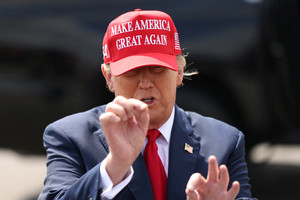The Invasion of Pride

June is Pride Month, and unless you’ve spent the last few weeks out of the country without your cell phone, you’re probably aware of that. Between rainbow flags, community events, and brand endorsements, the movement is pretty inescapable in the States.
It’s one thing for individuals and even some brands to take a positive stance on Pride. But how sincere – and how warranted – are these endorsements when they come from federal agencies like the FBI or defense contractors like Lockheed Martin?
Pride’s roots in America go all the way back to 1970. It wasn’t until 1999 that President Bill Clinton officially declared June the month of Gay and Lesbian pride. President Barack Obama expanded the premise of Pride to include the whole LGBT community during his presidency, and even President Donald Trump, who declined to recognize it in 2017, eventually came back around in 2019 to endorse the June festivities.
As is often the case with social causes, countless brands and corporations have leaned into Pride as a form of marketing. Most brands won’t call it that though, and instead package it as an expression of the company’s values. Corporate activism is a tough line to walk, especially when representing an allegedly diverse staff, and presumably more so consumer base. If it’s done poorly, which it often is, it could leave a bad taste in the mouths of activists and consumers alike.
RELATED: Does ESG Promote Social Welfare or Enforce Political Agendas?
However, in recent years, there seems to be a more sinister element at play in the corporate activist faction of the Pride movement. Entities like the FBI, CIA, and U.S. State Department are joining the movement in what they claim is solidarity, but feels more like appropriation of Pride – all in attempts to market themselves and smooth over some of their uglier involvements or public image issues.
Also in the mix is NATO, a Pride movement veteran. No stranger to faux activism, the alleged security alliance is keen to make itself look benevolent, while haphazardly putting its roots down in countries that aren’t particularly fond of LGBT visibility themselves - including Ukraine.
RELATED: Is the term “anti-LGBTQ” biased?
Corporate activism surely leaves much to be desired. But it’s one thing to eat a candy bar from a rainbow-colored wrapper. It’s another to watch organizations that are politically persecuting dissenters, fueling conflict in foreign countries, and villainizing governments for proposing laws not dissimilar to ours aim to makeover their public images off the backs of the LGBT community.
Naturally, as American opinion of federal agencies is shaky at best — especially among conservatives who have traditionally been less accepting of LGBT rights — it’s hard to see the positive impact endorsement from an agency like the CIA (which for some reason also held a panel at SXSW this year) could have on Pride. Yet, it’s not hard to see the favor such endorsements could win the organizations themselves.

While it has to be the case that many individuals at organizations like the FBI or NATO have favorable views of LGBT people, or may even be queer themselves, this organizational level of groupthink from agencies as politicized as the aforementioned feels like an infringement on what the movement actually aims to accomplish – apolitical inclusion and acceptance.
At best, the virtue signaling is a painstaking oversimplification of LGBT people, assuming few of them are a part of the 46% of Americans who don’t think the FBI is “doing a good job,” or the 35% that see NATO as unfavorable. At worst, it’s a self-righteous ideological Facetune of sorts that aims to boost public opinion on irrelevant grounds.
Pride is supposed to be a celebration of self-expression and love for the marginalized LGBT community. As with anything else, there are obnoxious loudmouths, like the trans woman who controversially took her shirt off at the White House’s Pride celebration, but many LGBT people likely do gain something from the movement.
Agencies like the FBI or CIA should rethink how they associate themselves with Pride, and whether they truly need to launch social initiatives or rebrandings in observation. Piling on the already widespread support for Pride may accomplish the opposite of the intended effect due to the obscured political perceptions many Americans have of these agencies.
As for the defense contractors – we can only hope the folks at Lockheed Martin got the rainbow-wrapped Kit Kats to rain down from their float in the D.C. Pride parade this year. Spectators would definitely know something was off if they only had the red ones.
Andy Gorel is a News Curator at AllSides. He has a Center bias.
This blog was reviewed by Henry A. Brechter, Editor-in-chief (Center bias), Joseph Ratliff, Daily News Editor (Lean Left bias) and Julie Mastrine, Director of Marketing and Media Bias Ratings (Lean Right bias).

May 2nd, 2024

May 1st, 2024

May 1st, 2024

April 29th, 2024